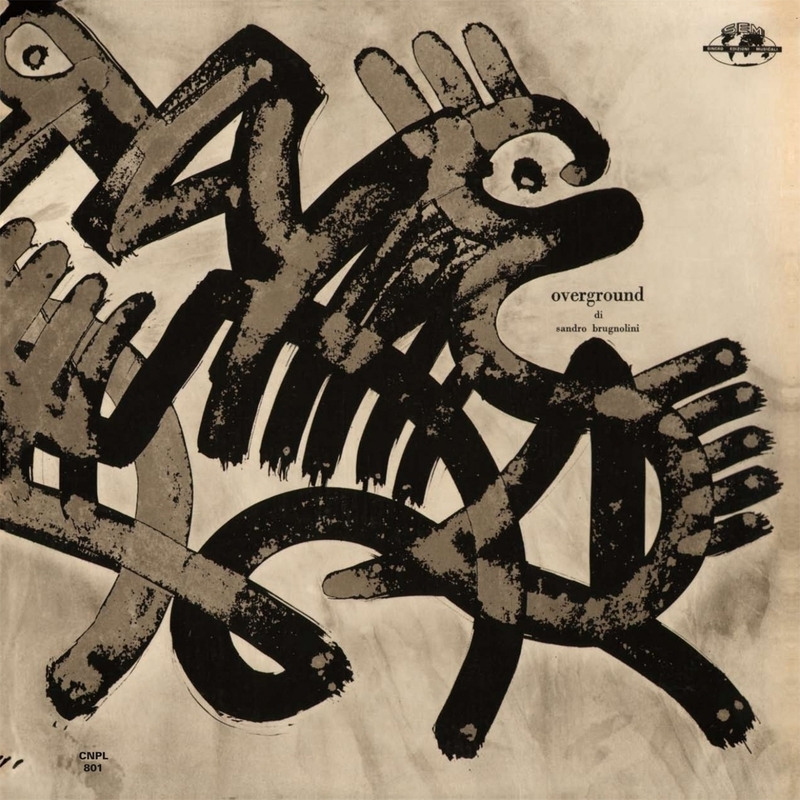Some time ago, I came across an Italian library compilation whose title perfectly summarized how exploring this genre feels like: Speedball Experience - Obscure Pop Jazz From Early 70's Italian Music Library.
Waves of different influences blend together, having waited to be discovered while serving as soundtracks for commercial productions. While their initial purpose resumed to that, numerous albums in the myriad of Italian and French library quickly became a reference point for performers, composers and collectors worldwide. Not only because of the rare grooves, and their expanding tentacles in jazz, psychedelic, and many other music genres, but also thanks to the cult following of the giallo movie genre that emerged in the late 1960s. It may be superfluous to recall the contributions of Enio Morricone, Puccio Roelens, Bruno Nicolai and many others to the movie scores.
It was something else, however, that got my attention. While listening to Sandro Brugnolini’s Underground, a co-worker across the room told me that hearing it, he feels like in a Jean-Paul Belmondo movie. It is, of course, a comparison we all can relate to, but while looking at it from the opposite spectrum, library music can open new territories to neophyte ears, introducing sounds that would have remained niched otherwise. It made jazz and psych descend into the 21st century from the empire of “intellectual”, esoteric music, to an accessible one that can be associated with other art movements, while understanding its purpose. Among the first movies to feature a jazz OST was Enzo Battaglia's Gri Arcangeli, a 1963 flick whose score was composed by Brugnolini.
Brugnolini launched his career playing in a band inspired by Miles Davis, Modern Jazz Gang (see the 1960 album Miles Before and After) and later developed a very prolific activity as a composer and performer, alone and in collaborations, under his name as well as under pseudonyms (such as Narassa). He would perform personally on jazz albums and/or tracks, being an alto sax player. One of the first jazz soundtracks for a movie belongs to him, for the 1963 Gli Arcangeli. Apart from his work for movie scores his albums Underground and Overground are two of his most impressive works, preceding the team album Feelings, a milestone in library music.
I have a personal, maybe naive interpretation of the antonymic pairing of the album titles, for which I have found no confirmation so far. In any case, Underground resides in a visceral, instinctual side of the psychedelic realm, that blends with funk and even Latin and African rhythms, exotic percussions, influences of the Southern hemisphere that engrave in its foundation, only to later rise to a jazz improvisation. The nominal symmetry encloses this circle; the first, the eighth, and the last song share the same name, Psichefreèlico.
For Overground, Brugnolini’s journey continues, starting with the first psych tune, only to later dive into a prog atmosphere that detaches itself from the percussion rhythm to which our instincts respond, approaching a more off-beat sound. It’s the above-the-ground experiences that the late 1960s taught us. (See tracks Alipid, Amofen).
Tracing a timeline through a library discography such as Brugnolini’s creates an actual visualization of how music eroded through various cultural and artistic movements in the 20th century. It mapped a landscape that later gained its autonomy, paving the way for musicians such as Massiera, blurring the boundaries between genres, thus giving birth to even more intriguing sounds.
Tracklist:
Overground:A1 Celluin
A2 Adrie's Dream
A3 Cirotil
A4 Amofen
B1 Simanite
B2 Roxy
B3 Alipid
B4 Brain
Underground:
A1 Psichefreèlico (Sostenuto)
A2 Impressiànico
A3 Reiteratòico
A4 Uauàico
B1 Africaneìdico
B2 Bacharàchico
B3 Respòndico
B4 Psichefreèlico (Ballata)
B5 Velocipedèico
